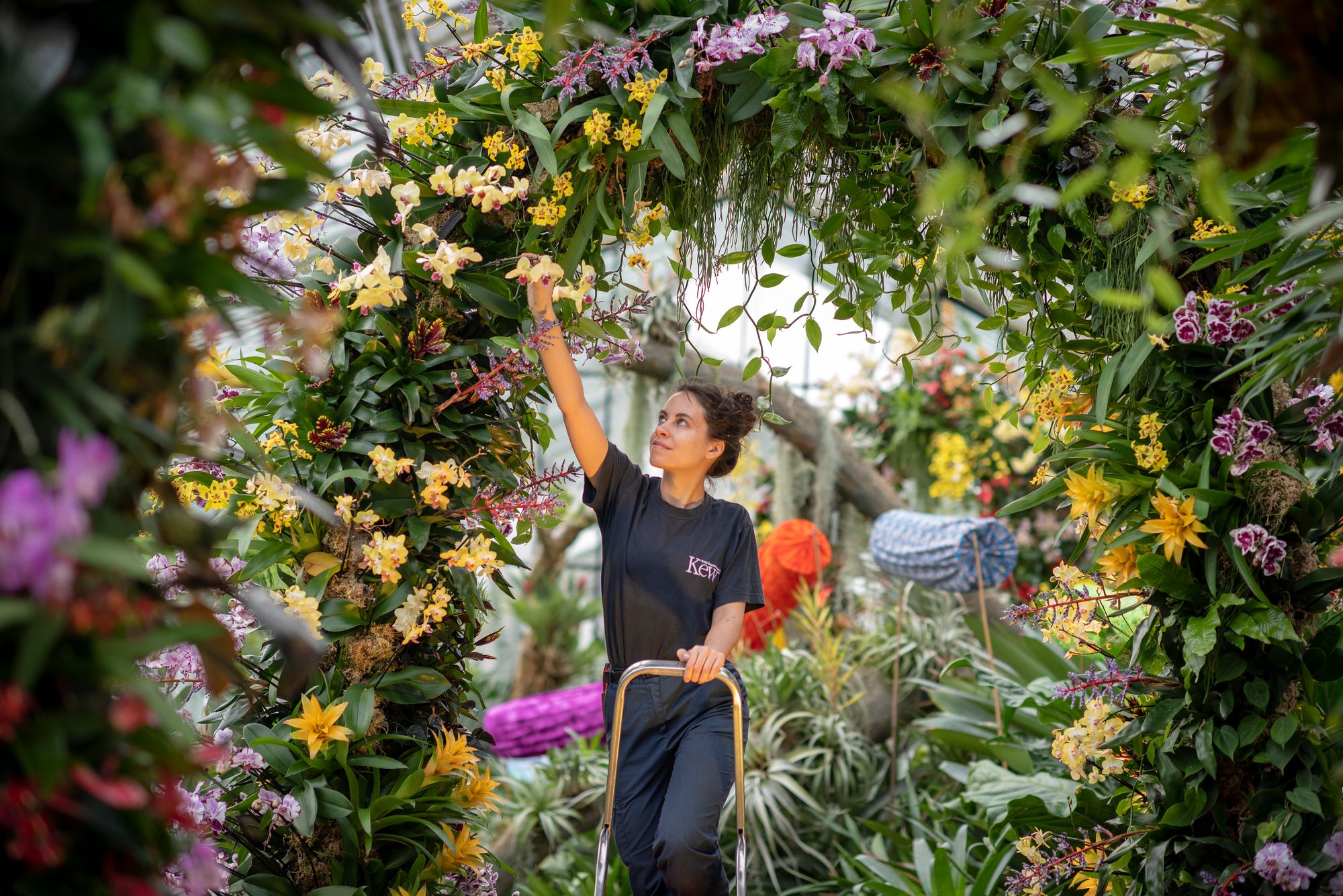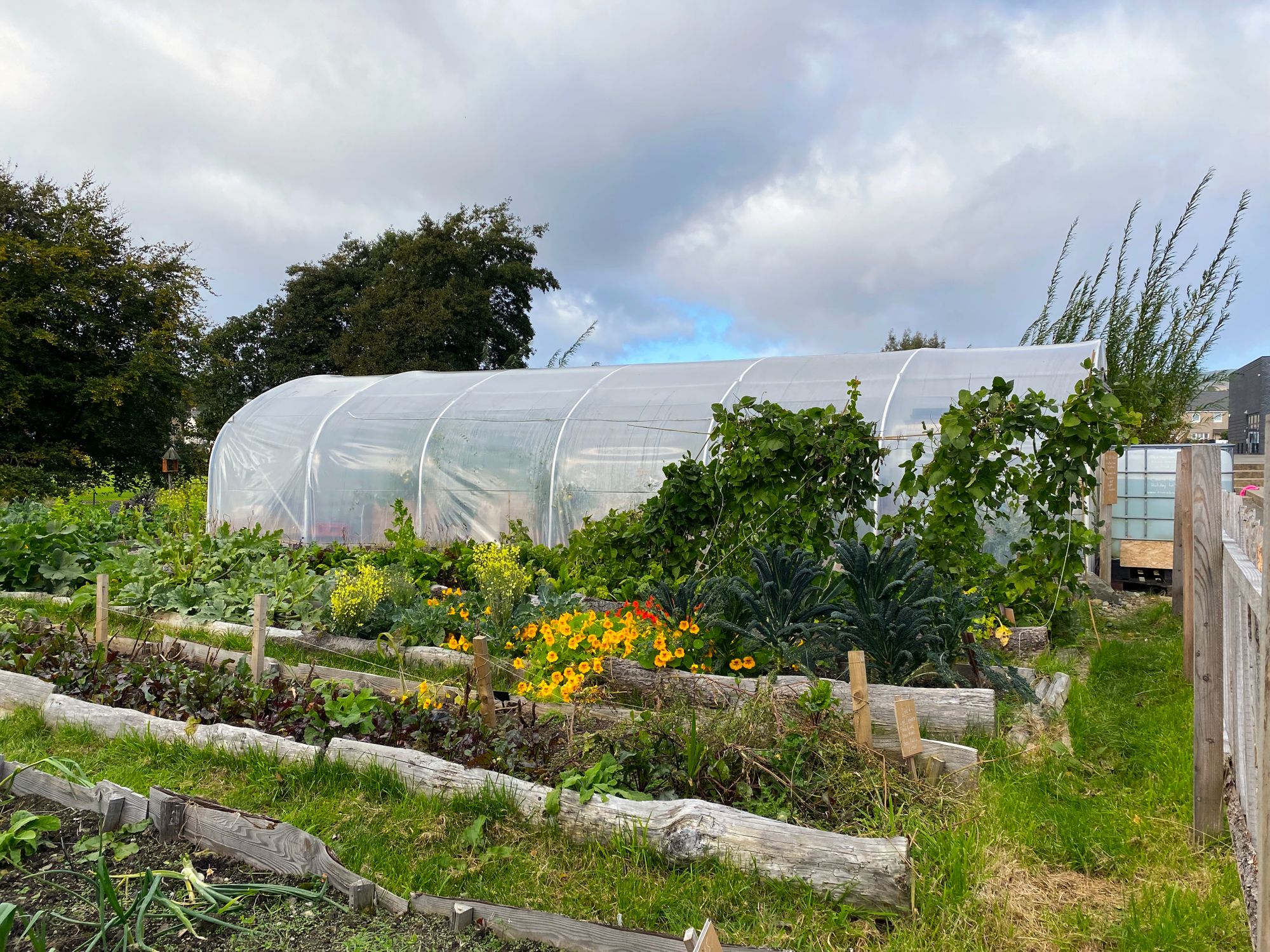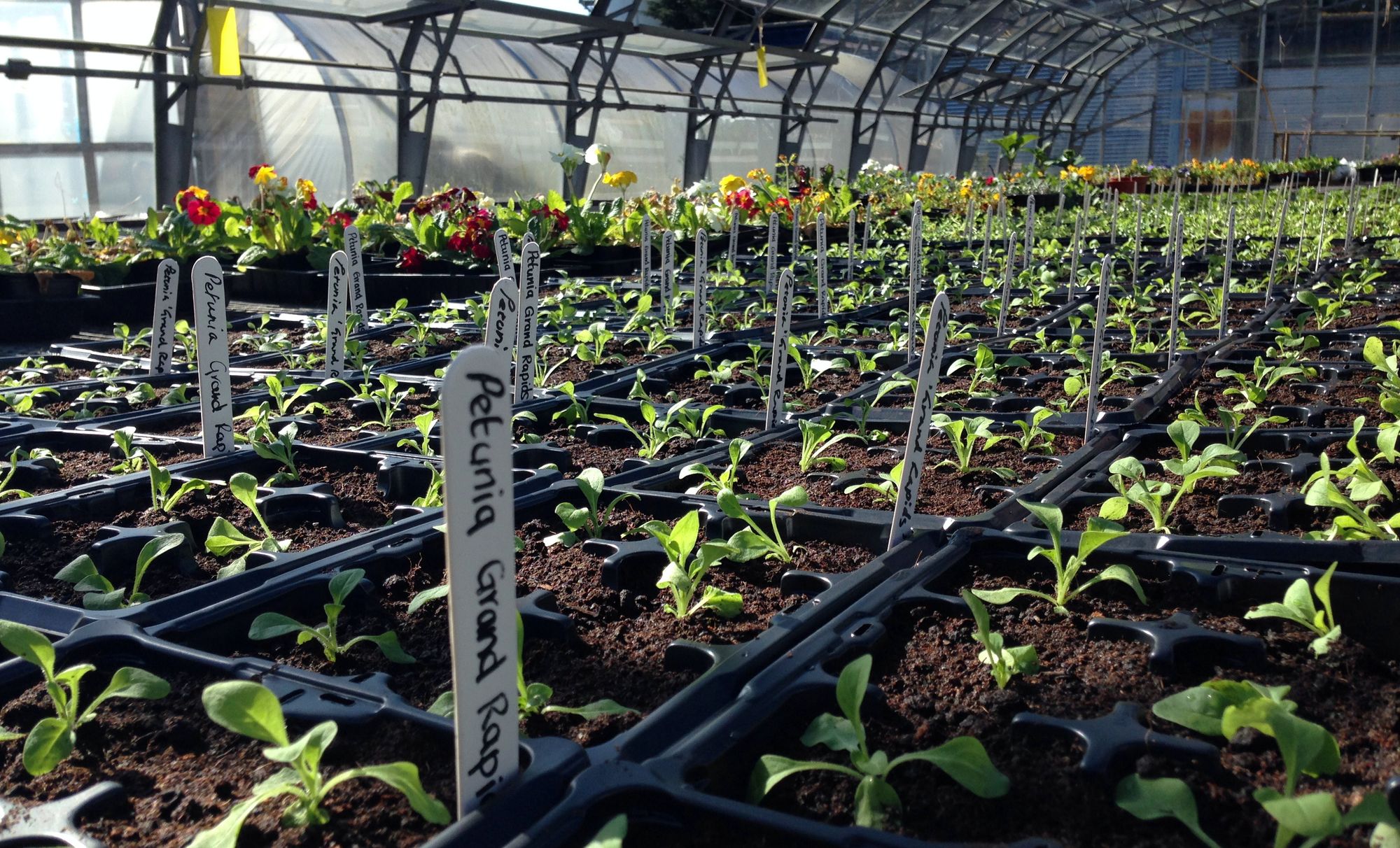Getting started with a career in horticulture is both exciting and daunting. You’re keen to get your hands dirty, but all the job ads are asking for practical experience that you don’t have (yet!).
While I was doing my horticulture HNC at Glasgow Clyde College, I dreamed of the day when I would finally be a working gardener. I could picture it: I would arrive at work, clad in my waterproofs and work boots, ready for a day of digging or pruning or sowing. I was also very keen to learn more on the job. However, there was a stumbling block: most of the job ads I saw stated that practical experience was essential, and I didn’t have quite enough to get an interview. It felt impossible at first – but with some perseverance, I gained enough practical skills to land my first gardening job.
Horticulture is a diverse sector, and there are many different jobs you can do as a horticulturalist – but if you’re wondering how to gain experience for an entry-level gardener role, you’re in the right place! In this article, I explore five different ways of getting that all-important practical experience. Armed with this knowledge, there’s a good chance your hard work and dedication will pay off.
❗ Top tip
In the early stages of your career, it’s good to keep an open mind and see what opportunities become available. However, if you already know exactly what you want to do, it's worth doing your research to see how to get there. Look at horticulture job ads and see what employers are looking for – are there any essential skills or areas of knowledge that you need to build on? If so, look for the opportunities that will help you address these.

- Internships, apprenticeships and traineeships
Horticultural organisations like botanical gardens or the National Trust regularly offer apprenticeships, internships and trainee opportunities based at individual sites. Some of these are paid positions, but some shorter placements are (unfortunately) unpaid. Many of the paid opportunities last for 12 months or more, and combine practical training with theory, to help you build experience in a structured and professional setting, in all seasons. Some apprenticeships – Kew Gardens in particular – may ask for some practical experience from applicants. But many others – like The MacRobert Trust – aim to give you that practical experience through their training (you’ll still need to demonstrate your enthusiasm for a career in horticulture, though).
It’s not just the larger gardens that take on trainees – sometimes private gardens employ apprentices too. If there’s a garden near you that you like, sign up for their newsletter and follow their social media – that’s how I found my full-time trainee role! You never know when an opportunity will pop up.

It’s worth noting that career switchers and those with caring responsibilities are not always able to do a full-time placement. If that’s you, there are other options: the Work and Retrain as a Gardener (WRAGS) scheme organises part-time practical horticulture placements for 12 months. I asked Caroline Saunders, a professional gardener and WRAGS graduate, how the placement worked out for her. According to Caroline, the placement “really helped to build my confidence, because it allowed me to work for a full year in a high-calibre garden that I wouldn’t otherwise have access to.” She also noted that “the practical skills I developed and the guidance I got from the head gardener and gardening team were really valuable. In the end, the contacts I made during my placement resulted in a permanent job afterwards.” This is a great reminder to make the most of any networking opportunities that a placement may offer.
Internships and apprenticeships
Paid opportunities
- Historic Botanic Garden Training Programme
- Kew Royal Botanic Gardens
- MacRobert Trust Horticultural Training Scheme
- Apprenticeships with the National Trust
- School of Heritage Gardening
- Work and Retrain as a Gardener (WRAG) with the WFGA
Unpaid opportunities
2. Volunteering
Volunteering is how it all began for me. The confidence and experience I gained – coupled with my qualification – led to my first job in horticulture. While volunteering isn’t feasible for everyone, if you can spare an hour or two a month, or a week if you can manage it, you can pick up practical skills that will add value to your CV, and you’ll have examples to give in an interview. I started small and volunteered at The Hidden Gardens, Glasgow, for a few hours on a Saturday, about once or twice a month over one summer.

If a 12-month apprenticeship isn’t possible for you, consider occasional or regular volunteering. Time is precious and can be in short supply – so do what is right for your circumstances.
During my HNC in Horticulture, I did a week of work experience at the same garden and continued as an occasional volunteer. I potted on lots of seedlings, pruned fruit trees, and mulched flower borders, all under the guidance of a skilled gardening team. When I applied for my first gardening job, a part-time role, I got it – and yes, you guessed it, it was at The Hidden Gardens.
Many community-based gardening projects take on volunteers, as do many of the horticulture organisations that offer internships and apprenticeships. If a 12-month apprenticeship isn’t possible for you, consider occasional or regular volunteering. Time is precious and can be in short supply – so do what is right for your circumstances.
3. Seasonal work
Seasonal work really helps you get a foot in the door in the horticultural industry. Garden centres, plant nurseries, National Trust gardens, community gardening projects, botanic gardens, and private estates all frequently offer seasonal job opportunities. Quite often, they are entry-level roles supporting an existing gardening team, and as such, employers may not ask for much experience. Your enthusiasm, knowledge, and a few core skills are far more important!
There’s no doubt that the financial uncertainty that comes with doing short-term seasonal roles is a challenge. It’s possible you’ll be kept on after the season ends – but if not, at least you'll have a few extra months of experience on your CV, and a better chance of success when you apply for your next job. To build her practical expertise after an HND in horticulture, Kirsten Eadie secured work as a seasonal groundsperson with the National Trust for Scotland. She acknowledges that “there’s a lot of competition for full-time roles in horticulture – and when you have a qualification but no practical experience, it’s hard. I found it easier to get seasonal work, and now that I’ve done a season in a heritage garden, I’m in with more of a chance when I apply for a permanent role.”

4. Grow your own
If you have a garden, balcony, or allotment, you can get hands-on experience and choose what you'd like to grow. By sowing, growing, and maintaining a space yourself, you’ll gain expertise in soil health, plant nutrition, planning, managing pests and diseases, and propagation. You can experiment with different types of planting, such as herbaceous plants, edibles, and shrubs, and when you get to interview, you’ll have a good selection of real-life examples to discuss. It’s also good to tailor your growing towards your career aspirations – for example, if you're hoping to work in a formal heritage garden, getting to know herbaceous plants and other ornamentals is really useful. In contrast, if you’re hoping to work for a community gardening project or urban farm, vegetable growing experience can be more valuable. It’s true that growing your own does not amount to professional experience, but it will still boost your knowledge and add to your bank of practical examples to talk about at every stage of the job application process.

5. Practical training
If you're still struggling to get experience on your CV and secure a job, you could try doing a workshop or short course with an emphasis on practical skills. Professional training organisations and many public gardens, colleges, and botanic gardens offer practical courses. These aren’t usually cheap, but they can give your skills an extra boost.
If you’re investing time and money in these kinds of courses, do some research first. What are the essential skills required for the jobs you’re looking at? Maybe machinery use is one of them, and if so, you could try doing a day course or a workshop in learning to use a particular machine – but make sure it’s worth it first. A day course in brushcutter skills, for example, could cost £250, so it’s important that you get value for money! Alternatively, if you'd rather focus on your vegetable growing or propagation skills, practical workshops on these topics can be more financially accessible. Bear in mind that many employers will give you some training in these core skills, but if you’re really struggling to get that first job, you may feel that doing an extra course is worth the investment.
🧑🌾 Where to find practical training opportunities
Local colleges
Check out your local college, they may offer workshops or short courses. For example, Writtle College delivers a range of practical courses, including one-day pruning, propagation and machinery courses.
Botanic gardens
Botanic gardens often have a schedule of classes and courses, so find your closest venue and see what they have to offer. Glasgow Botanic Gardens offers a 10-day RBGE Certificate in Practical Horticulture.
Training providers
Lantra offers professional training for the land-based sector, including entry-level machinery courses, an introduction to green roofs and hedge laying.
📚 Further resources
- What does being a Head Gardener really entail? Andrew Hinson tells us how he spends his working days at Greenbank Garden.
- If you’re considering a career switch into horticulture, Lynne has some more useful advice for you!
🌻 Ready to begin your horticultural job search? Start by checking out the latest job vacancies!

